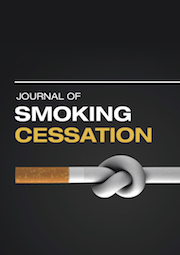Article contents
Motivation, Cognitive, and Affective Factors that Predict Smoking Relapse: A Cross-Sectional Study in a Filipino Sample
Published online by Cambridge University Press: 21 February 2012
Abstract
In the plethora of international research on smoking relapse there are findings that suggest distinct ethnocultural differences in relapse predictors. This study aimed to uncover cognitive and affective factors that contribute to relapse in a sample of Filipino adult smokers (N = 115). Using discriminant function analysis, results suggest that self-efficacy, outcome expectancy, craving and the subdomains of motivation to change contemplation and action are accurate relapse predictors, whereas negative emotional states are not. An integrative framework was used in the discussion to account for inconsistencies in the results. Implications for understanding the relapse cycle, the connection between smoking relapse and substance use, as well as suggestions for future studies on smoking relapse, are also discussed.
- Type
- Articles
- Information
- Copyright
- Copyright © Cambridge University Press 2011
- 4
- Cited by


